
Investigative and newly approved drugs targeting RET activity and KRAS-related mutations are showing deep, durable responses in several types of cancers.

Investigative and newly approved drugs targeting RET activity and KRAS-related mutations are showing deep, durable responses in several types of cancers.

While discussing a few case studies, the panel was able to make appropriate treatment decisions for each patient and emphasized the importance of communicating with patients as a physician.
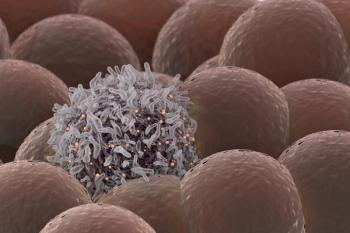
The definition of oligometastatic disease has continued to be shrouded in uncertainty due to the varying assessment criteria that exist at present during trial analyses.

The development of precision medicine for pancreatic cancer has faced a number of challenges, including a lack of specific molecular-targeted drugs.

Margetuximab, trastuzumab deruxtecan, and tucatinib have all been approved in the past 2 years for the treatment of various subsets of patients with breast cancer.

Jonathan Spicer, MD, medical director of the McGill University Health Center Thoracic Oncology Network, discusses what is still needed to be investigated in the future following the phase 3 trial assessing nivolumab plus platinum-doublet chemotherapy as neoadjuvant treatment for resectable non-small cell lung cancer.

Jonathan Spicer, MD, medical director of the McGill University Health Center Thoracic Oncology Network, discusses what some of the most important findings were in regard to patient outcomes from the phase 3 trial assessing nivolumab plus platinum-doublet chemotherapy for resectable non-small cell lung cancer.

Research pharmacist Brian Wortz, PharmD, with Cancer Treatment Centers of America, said working as a pharmacist in clinical research provides interesting opportunities to be at the forefront of drug development.
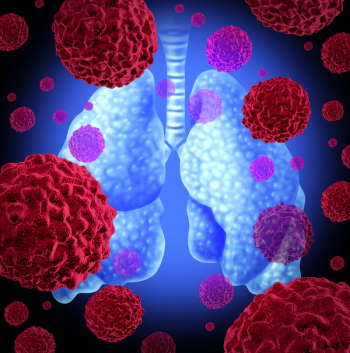
Jonathan Spicer, MD, medical director of the McGill University Health Center Thoracic Oncology Network, discusses findings regarding adverse events during the phase 3 trial assessing nivolumab plus platinum-doublet chemotherapy as neoadjuvant treatment for resectable non-small cell lung cancer.

Jonathan Spicer, MD, medical director of the McGill University Health Center Thoracic Oncology Network, discusses what the findings of the phase 3 CheckMate 816 trial assessing nivolumab plus platinum-doublet chemotherapy as neoadjuvant treatment for patients with resectable non-small cell lung cancer may mean for future treatment options.

Jonathan Spicer, MD, medical director of the McGill University Health Center Thoracic Oncology Network, discusses his presentation on surgical outcomes from the phase 3 CheckMate 816 trial assessing nivolumab plus platinum-doublet chemotherapy as neoadjuvant treatment for patients with resectable non-small cell lung cancer.
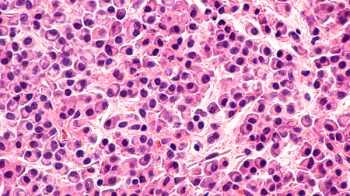
ibrutinib (Imbruvica) plus venetoclax (Venclexta) shows complete response and complete response with incomplete bone marrow recovery rate of 56% among patients with chronic lymphocytic leukemia and small lymphocytic lymphoma.

If it were to be approved now, the drug would be used in patients with metastatic castration-resistant prostate cancer who have progressed on an androgen receptor-directed therapy and 1 to 2 taxane-based chemotherapeutics.

Jonathan Strosberg, MD, section head of the Neuroendocrine Tumor Program and vice president of Medical Oncology at the Moffitt Cancer Center, discusses the overall impact of the research assessing lutetium Lu 177 dotatate for midgut neuroendocrine tumors.

Venetoclax (Venclexta) plus fulvestrant (Faslodex) did not provide superior outcomes compared to fulvestrant monotherapy among patients with locally advanced or metastatic ER–positive, HER2-negative breast cancer.

Jonathan Strosberg, MD, section head of the Neuroendocrine Tumor Program and vice president of Medical Oncology at the Moffitt Cancer Center, discusses patients reports of their quality of life while being treated with lutetium Lu 177 dotatate for midgut neuroendocrine tumors.
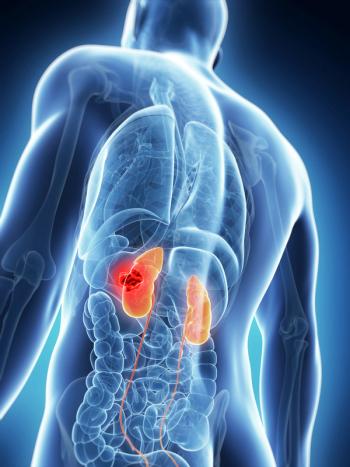
Andrea Apolo, MD, a Lasker clinical research scholar and head of the Bladder Cancer Section at the National Cancer Institute, explained how results from the phase 3 trial could change the treatment opportunities for patients with aRCC, as well as the treatment landscape more broadly.

The investigative therapy targets a specific molecule that is generally only expressed on the prostate cancer cell, according to a recent interview.

Researchers estimate a 5-year overall survival rate of 42.9% for patients treated with durvalumab compared with 33.4% for those administered a placebo after chemoradiation therapy.

Jonathan Strosberg, MD, section head of the Neuroendocrine Tumor Program and vice president of Medical Oncology at the Moffitt Cancer Center, discusses some of the adverse events patients experienced during the phase 3 trial assessing lutetium Lu 177 dotatate for midgut neuroendocrine tumors.

Medical oncologist Michael Morris, MD, discussed the newest findings of the phase 3 VISION trial, which is investigating the use of 177Lu-PSMA-617 in patients with advanced prostate cancer.

Jonathan Strosberg, MD, section head of the Neuroendocrine Tumor Program and vice president of Medical Oncology at the Moffitt Cancer Center, discusses the methods used during the phase 3 trial to assess lutetium Lu 177 dotatate for midgut neuroendocrine tumors.

Andrea Apolo, MD, a Lasker clinical research scholar and head of the Bladder Cancer Section at the National Cancer Institute, explained what patients with aRCC who were given either nivolumab plus cabozantinib or sunitinib reported in regard to their quality of life during treatment.

Notably, the investigative treatment avoids many of the severe adverse effects common in traditional therapies.
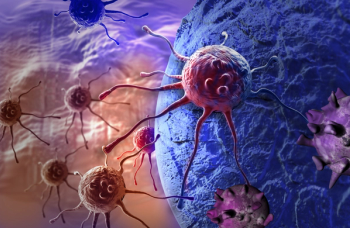
Bemarituzumab is an investigational, potential first-in-class targeted antibody designed to block specific fibroblast growth factors from binding and activating FGFR2b.

Research has also shown activity with sacituzumab govitecan in subsets of patients with triple-negative breast cancer, such as those with active brain metastases.

The use of 177Lu-PSMA-617 resulted in a 60% reduction in radiographic progression or death among patients with advanced prostate cancer.

Jonathan Strosberg, MD, section head of the Neuroendocrine Tumor Program and vice president of Medical Oncology at the Moffitt Cancer Center, discusses the efficacy and safety of lutetium Lu 177 dotatate for midgut neuroendocrine tumors.
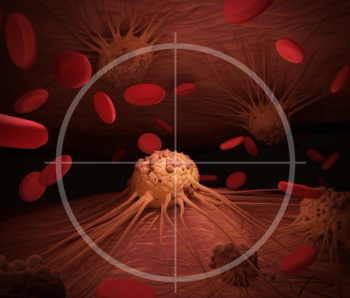
In PD-L1-positive patients, tislelizumab improved median overall survival by 3.5 months with a 46% decrease in the risk of death compared with chemotherapy.

Jonathan Strosberg, MD, section head of the Neuroendocrine Tumor Program and vice president of Medical Oncology at the Moffitt Cancer Center, gives an overview of the phase 3 trial assessing lutetium Lu 177 dotatate for midgut neuroendocrine tumors.